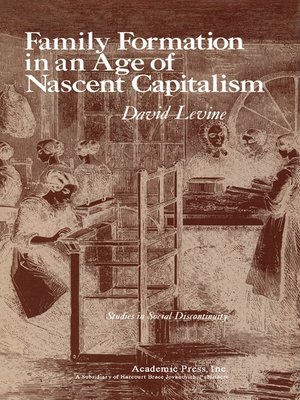
Sign up to save your library
With an OverDrive account, you can save your favorite libraries for at-a-glance information about availability. Find out more about OverDrive accounts.
Find this title in Libby, the library reading app by OverDrive.



Search for a digital library with this title
Title found at these libraries:
| Loading... |
Family Formation in an Age of Nascent Capitalism deals with the impact of early capitalism on the strategies of family formation among four sets of English villagers in the period before the wholesale switch-over to factory industry. This era, roughly speaking from 1550 to 1850, has been variously described as ""traditional,"" ""preindustrial,"" and, more recently, ""protoindustrial."" However, the author sees it as a stage in the transition from feudalism to capitalism—a halfway house. The book begins by placing the study in the context of the larger debate concerning nascent capitalism, early rural industrialization, and the growth of population. Separate chapters then discuss the growth and structure of the framework knitting industry in Shepshed and the social implications of this economic change; the patterns of immigration, population turnover, and generational replacement in Shepshed and Bottesford; and industrial involution and domestic organization in 1851. Subsequent chapters deal with the demographic implications of rural industrialization; the relationship between economic opportunity and family formation; and relationships among the expectation of marriage, bridal pregnancy, and illegitimacy.






